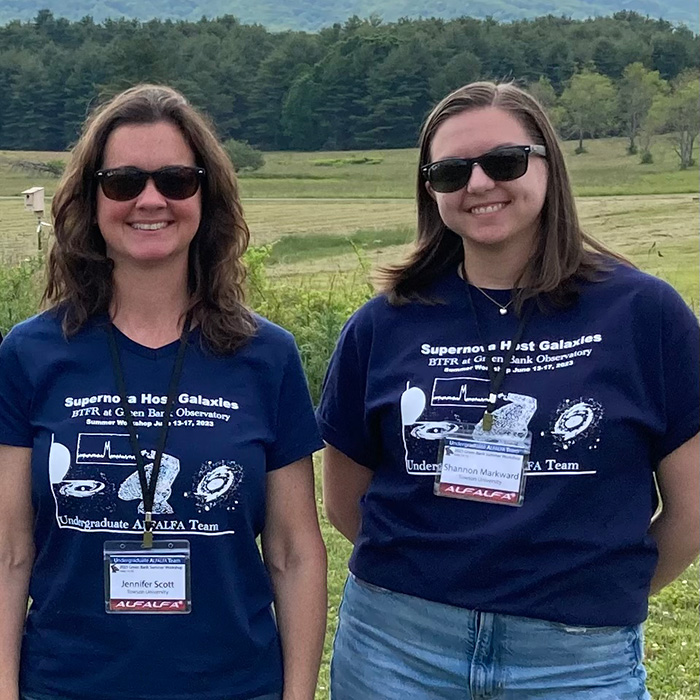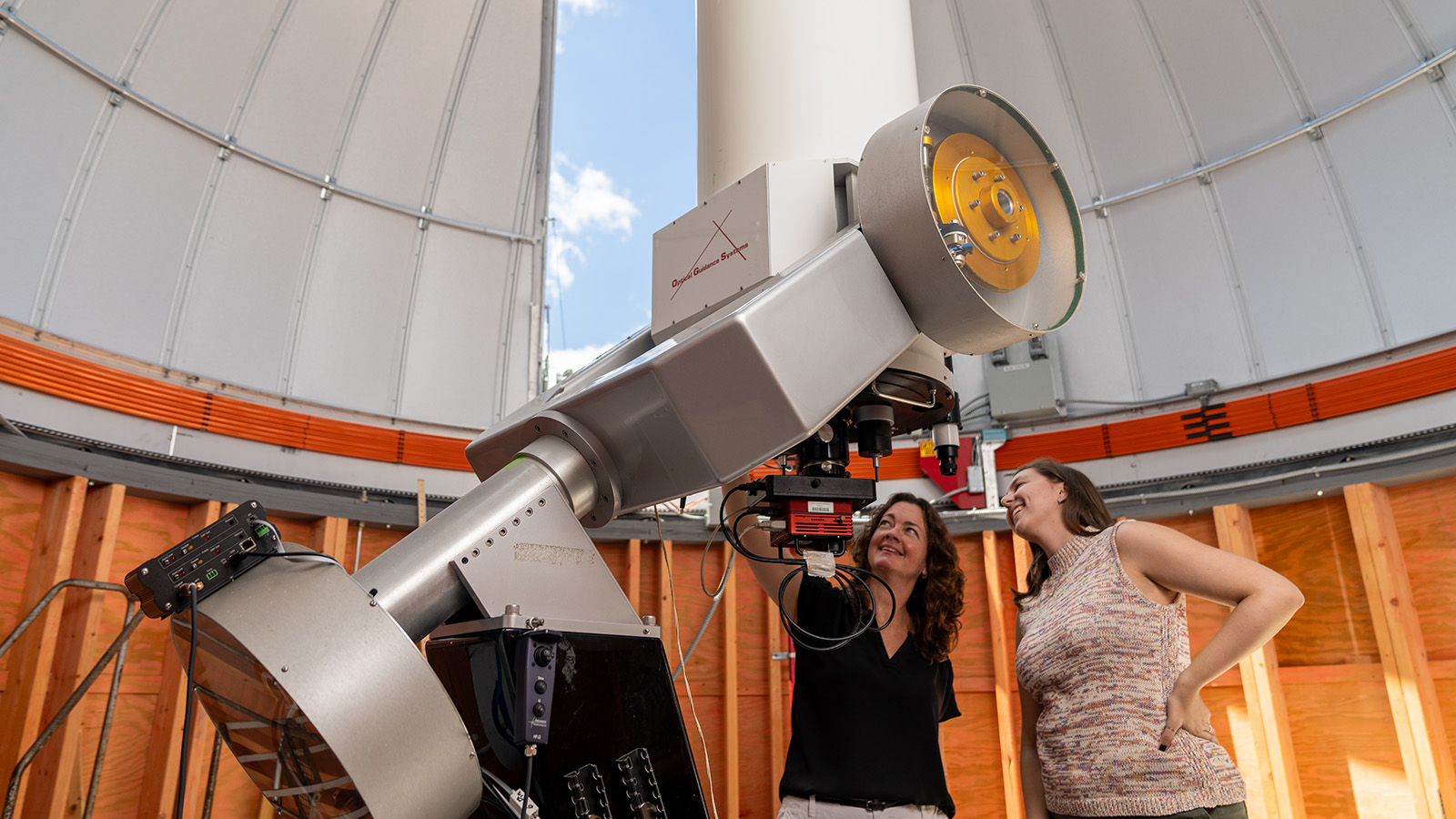TU physics major is reaching for the stars
Senior Shannon Markward has found research opportunities in astrophysics through mentorship with professor Jennifer Scott
Ever since she was a kid, Towson University senior Shannon Markward wanted to figure out how things worked.
She’s also had a passion for science. So when it came to time to pick a major, the Damascus, Maryland, native naturally leaned toward physics. But it wasn’t just normal physics that piqued her interest, she shot for the stars and focused on astrophysics and astronomy.
“I can ask questions on some of the largest scales, studying galaxies and large-scale cosmological structure as well as some of the smallest—learning about nuclear fusion on the atomic level in the core of a star,” Markward says. “I find it incredibly fascinating that we can learn so much about the universe and objects with lifetimes of billions of years from only the few centuries that people have been looking at the sky.”
Coming to TU, it's no surprise she found a common spirit in Jennifer Scott, professor and chair of the Department of Physics, Astronomy & Geosciences in the Fisher College of Science & Mathematics.
Just like Markward, Scott was inspired to study the stars at a young age. She specifically remembers staying up late to watch Carl Sagan’s television series “Cosmos.”
“I was totally captivated by his descriptions of planets, stars, galaxies, the Big Bang and of the people throughout history who studied them,” Scott says. “I wanted to be one of those people too.”
Mentorship through Collaboration

As a professor, Scott also wants to pass that passion for astronomy to students like Markward. Along with teaching them in the classroom, she is helping them find research projects that give them amazing opportunities.
One project Scott and Markward are working on together is part of a larger collaboration that studies the rotation of galaxies, which is funded by the National Science Foundation and the Maryland Space Grant.
Over the summer, the two traveled to the Green Bank Telescope, a 100-meter radio dish located in Green Bank, West Virginia. There the two measured the low-frequency radio emissions from hydrogen in the discs of flat, spiral galaxies, like the Milky Way, which spin when they rotate.
By measuring the rotation of the galaxy, the pair can then get an estimate of its
mass, particularly that of the gas in the galaxy.
They then combine that with data from other surveys to estimate the mass of the stars
in the galaxy. The next step is to try to calibrate a relationship that helps astronomers
learn the distances to galaxies.
Opportunities like this are one of the reasons Scott came to Towson University. They allow her to involve her students in her research.
“It is a privilege to work with students when they are at an exciting stage of their lives, full of questions and finding their paths,” Scott says. “I enjoy teaching and doing research with students since we often share a mutual sense of awe and wonder at the universe, and I get to keep learning about it right along with them.”
Getting to work with different types of data has been great because it allows me to see the scope of all the things I could be doing.
Shannon Markward
For Markward, this project confirmed she made the right choice in studying the stars.
“Getting a research opportunity like this helps me feel like I’m on the right track, and I get to experience different things before I decide my next steps,” Markward says. “Getting to work with different types of data has been great because it allows me to see the scope of all the things I could be doing.

Scott and Markward, shown with the telescope found the TU Observatory, have done research together at the Green Bank Telescope, a 100-meter radio dish located in Green Bank, West Virginia.
A Variety of Experiences
This wasn’t her first research opportunity. During the summer before her senior year, the first-generation student did a material physics research experience for undergraduates at Georgetown.
Markward is also a member of the Honors College, served as president of TU’s Astronomical Society (or Astro Club as she likes to joke) and has worked as an NASA Partner Eclipse Ambassador, where she shared information with the community about how to safely observe solar eclipses.
After she graduates, Markward plans to apply to graduate and doctoral programs. No matter what’s next, she knows TU has prepared her by offering so many opportunities.
“Getting to dip my toe into a bunch of different things before I graduate is pretty incredible,” Markward says. “And having professors like Dr. Scott, who is in my corner and can speak for me and my experiences, make me feel like I’m prepared for the future.”